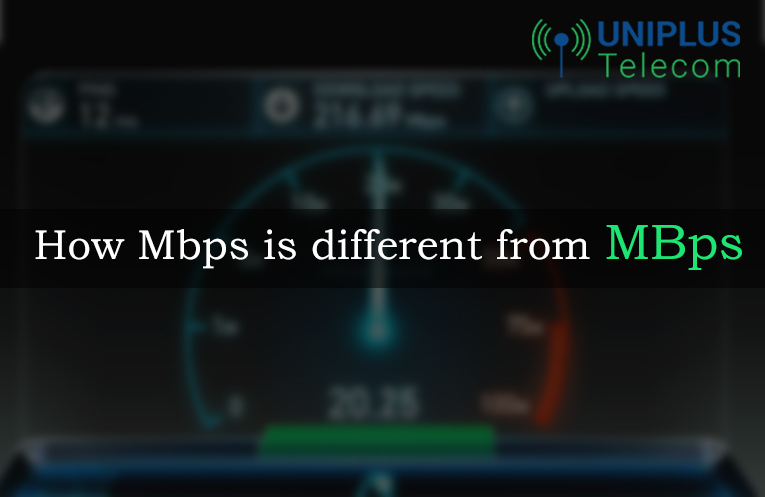In the current digital age, people use the internet for a variety of reasons. However, downloading different kinds of files constitute one of the prominent uses of the internet. When one thinks about downloading a file, the first thought that crosses one’s mind is the speed of one’s internet connection. Generally, Mbps is used to measure or gauge how fast an internet connection is working. However, most users tend to confuse it with MBps which is different from the former. The differences between the two terms are given below. Differences between Mbps and MBps Mbps refers to megabits per second. It is used as a standard of measurement for both upload and download speeds. In computer language, eight bits constitute a byte. On the other hand, MBps stands for megabytes per second. MB is used to in connection with the size of a file or the amount of transferred data. Together, they serve as the rate of transferal indicators. While you upload or download in terms of megabits per second, you download in terms of megabytes. Both the terms come into play while transferring or downloading a file. Every file comprises a fixed number of megabytes. If you download a 2 MB file, you can download it in just 2 seconds at the speed of 8 Mbps as eight megabits make one megabyte. Sometimes the download speeds may vary at different intervals of time. There are two reasons for this variation – the difference in the size of files and difference in the Mbps of a connection. In view of the fact that users are highly unlikely to experience the same Mbps at all times, most internet providers make a point of using an “up to” Mbps while advertising for their internet services. Among the different types of internet connection technologies available in the market, fibre broadband offers the highest speed. Normally, it offers speed beyond 45 Mbps. Higher Mbps translates into lesser time for downloading a file. Therefore, it is necessary to make a careful consideration at the time of choosing a plan or even an internet provider – this rule applies to traditional broadband as well as cheap business broadband.

How Mbps is Different from MBps
- by : Rachel Green
- Category : Cheap business broadband, Cheap business broadband in UK,
27
Jul


